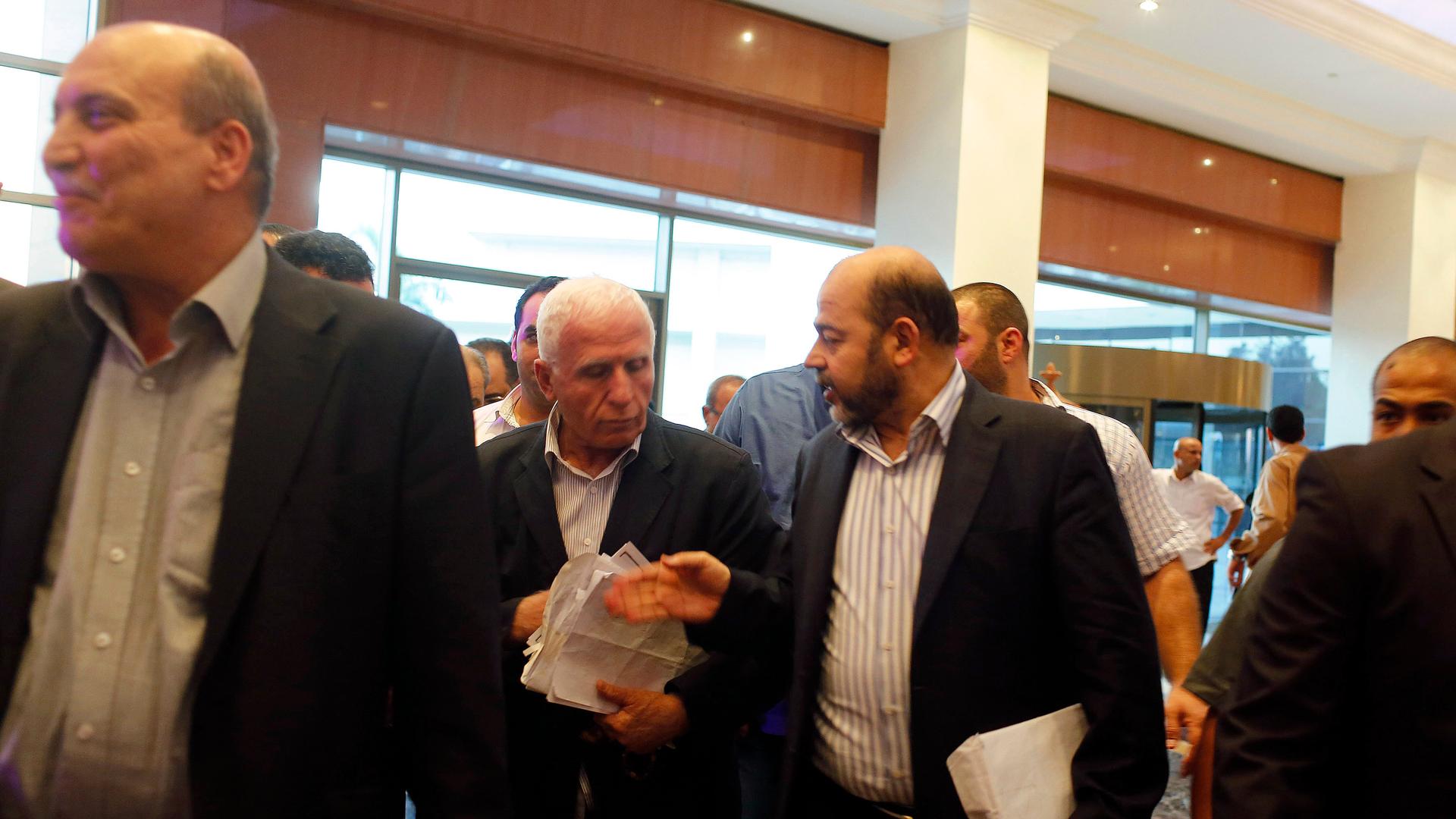Senior Hamas official and delegation leader Moussa Abu Marzouk (R) talks with Fatah official and delegation leader Azzam Ahmed (C) as they arrive at a hotel after negotiations in Cairo August 13, 2014.
After days of bloodshed, Israelis and Palestinians are finally talking.
They are negotiating an end to the month-long conflict. But how do enemies negotiate?
First, the talks are held in a third country. In this case, Egypt. And it is an indirect negotiation, meaning the two sides are not speaking face-to-face.
Gershon Baskin, who was involved in negotiations that released Israeli soldier Gilad Shalit three years ago, says when the two sides are such bitter enemies as Israel and Palestinians are, they sometimes use "go-betweens."
"In these kinds of negotiations, there's what they call an element of deniability," he says.
He says both sides want to deny that they are talking with "someone who has sworn to your non-existence."
"It would be breaking enormous political codes if they were to acknowledge each other," he explains.
"The Israeli delegation is being headed by an official from the ministry of defense. On the Palestinian side the delegation is being headed by a representative of President Mahmoud Abbas from the Fatah side and there are representatives of other Palestinian factions," he says.
Representatives from each side report back to the leaders and then communicate the response to the other team.
Back in 2011, when Baskin negotiated the release of Gilad Shalit, he says the talks took place mostly at an Egyptian intelligence base. The two delegations were in separate buildings and tried their best to avoid any form of contact.
Baskin says it can all feel like "children in Kindergarten."
"There is a lot of honor involved and a lot of 'who takes the first step and who takes the first compromise.' Neither side wants to give victory to the other side, particularly when there is such archenemies involved — like Israel and Hamas," he says.
Overall, he says, the talks are civil and it seems like both side are willing to end the fighting. It also helps, he believes, that Egyptians are "qualified and experienced" mediators.
